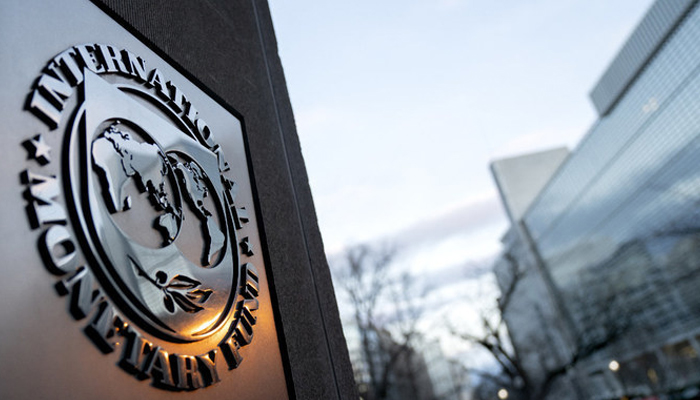Industrial revival
All the taxes that have been imposed or are to be imposed in the next budget have been approved or dictated by the IMF
LAHORE: The government and the businessmen are confused as they have no option but to stay within the limits prescribed by the IMF. The Prime Minister, after succumbing to IMF pressure, has initiated a forensic audit on the last gas price increase.
The Pakistan Business Council, while advising the government to stay engaged with the IMF, has asked the government to review the power and energy tariff imposed on the advice of the IMF. We are fully trapped by the IMF, and the government and the businesses know this fact. We have been micro-managed. All the taxes that have been imposed or are to be imposed in the next budget have been approved or dictated by the IMF. All the levies on petroleum and gas have been recommended by the Bretton Woods institution. There should be no confusion; the IMF will have the final say on taxation for some time.
All these actions speak volumes about our incompetence because the gas and power tariff in Pakistan are the highest in the region. This is despite the fact that the percentage of hydro-electric power in our power mix is the highest in the region. Moreover, we get a sizable quantity of nuclear power as well. But we also have the highest percentage of line losses, mainly due to power theft. In addition, there is widespread corruption in the power sector. These two aspects have not been taken up seriously by our authorities. It is because of this inaction, every time an increase in power or gas tariff is made, it includes 20 percent of the amount that is wasted because of corruption, incompetence, or theft. A tariff of Rs40 per Kwh carries a theft tag of Rs8 per Kwh. If you address this issue, the tariff would come down.
The same is the case with gas. Let us see what the forensic audit ordered by the Prime Minister reveals in the case of gas and what actions are taken to eliminate the flaws found in the audit.
Businessmen would definitely lose exports if they continue to produce low-value products. When costs increase, the first products to suffer are the low-value products, but the higher the value addition, the lesser is the impact of high input costs like power and gas. In our case, yarn exports would suffer. Yarn producers are the richest entrepreneurs in the country, and most of them have been operating for over 4-5 decades. Those that failed to move into value-added sectors of textiles are suffering. Those that established composite mills comprising spinning, weaving, and garmenting are in a better position and are coping with higher power and energy rates. Those operating apparel units would not suffer much, and their exports would grow in line with the global trend.
Most domestic manufacturers can pass on the cost of higher inputs to the consumers. They are provided adequate protection from imports, and competition should not be a worry for them. But the manufacturers that have to compete with similarly highly under-invoiced imported goods would suffer. This includes tyres, ceramic tiles, artificial leather, and many more. Those local producers that have to compete with smuggled goods would be devastated. These include TV sets, fridges, and other electronics, cosmetics, and many more goods.
To move forward, the government must address the menaces of under-invoicing and smuggling; otherwise, the chances of any industrial revival would remain a dream.
-
 King Charles Holds Emergency Meeting After Andrew Arrest: 'Abdication Is Not Happening'
King Charles Holds Emergency Meeting After Andrew Arrest: 'Abdication Is Not Happening' -
 Amazon Can Be Sued Over Sodium Nitrite Suicide Cases, US Court Rules
Amazon Can Be Sued Over Sodium Nitrite Suicide Cases, US Court Rules -
 'Vikings' Star Mourns Eric Dane's Death
'Vikings' Star Mourns Eric Dane's Death -
 Patrick Dempsey Reveals Eric Dane's Condition In Final Days Before Death
Patrick Dempsey Reveals Eric Dane's Condition In Final Days Before Death -
 'Heartbroken' Nina Dobrev Mourns Death Of Eric Dane: 'He'll Be Deeply Missed'
'Heartbroken' Nina Dobrev Mourns Death Of Eric Dane: 'He'll Be Deeply Missed' -
 Andrew Mountbatten-Windsor’s Arrest: What Happened When A Royal Was Last Tried?
Andrew Mountbatten-Windsor’s Arrest: What Happened When A Royal Was Last Tried? -
 Alyssa Milano Expresses Grief Over Death Of 'Charmed' Co-star Eric Dane
Alyssa Milano Expresses Grief Over Death Of 'Charmed' Co-star Eric Dane -
 Prince William, Kate Middleton Camp Reacts To Meghan's Friend Remarks On Harry 'secret Olive Branch'
Prince William, Kate Middleton Camp Reacts To Meghan's Friend Remarks On Harry 'secret Olive Branch' -
 Daniel Radcliffe Opens Up About 'The Wizard Of Oz' Offer
Daniel Radcliffe Opens Up About 'The Wizard Of Oz' Offer -
 Channing Tatum Reacts To UK's Action Against Andrew Mountbatten-Windsor
Channing Tatum Reacts To UK's Action Against Andrew Mountbatten-Windsor -
 Brooke Candy Announces Divorce From Kyle England After Seven Years Of Marriage
Brooke Candy Announces Divorce From Kyle England After Seven Years Of Marriage -
 Piers Morgan Makes Meaningful Plea To King Charles After Andrew Arrest
Piers Morgan Makes Meaningful Plea To King Charles After Andrew Arrest -
 Sir Elton John Details Struggle With Loss Of Vision: 'I Can't See'
Sir Elton John Details Struggle With Loss Of Vision: 'I Can't See' -
 Epstein Estate To Pay $35M To Victims In Major Class Action Settlement
Epstein Estate To Pay $35M To Victims In Major Class Action Settlement -
 Virginia Giuffre’s Brother Speaks Directly To King Charles In An Emotional Message About Andrew
Virginia Giuffre’s Brother Speaks Directly To King Charles In An Emotional Message About Andrew -
 Reddit Tests AI-powered Shopping Results In Search
Reddit Tests AI-powered Shopping Results In Search




